When it comes to setting up your equipment, you have a lot of choices to make. Do you go Nikon or Canon? What type of lenses should you start off with? One of the other choices that need to be made is what kind of filter you use.
Actually, this is a series of different choices: neutral density? Coloured filters? Graduated? Ultra-violet? Infra-red? There are so many things to think about, and that’s before you even get into the fact that you can pick up your filters in either glass or resin.
The big, important question is which of these will work best for you. Every photographer can agree that sharpness is really important – we want to be able to rely on our focus. That’s why we are looking at which is sharper – a glass or resin filter. We’ll also consider some other elements, such as which is the most durable and which requires the most care to use.
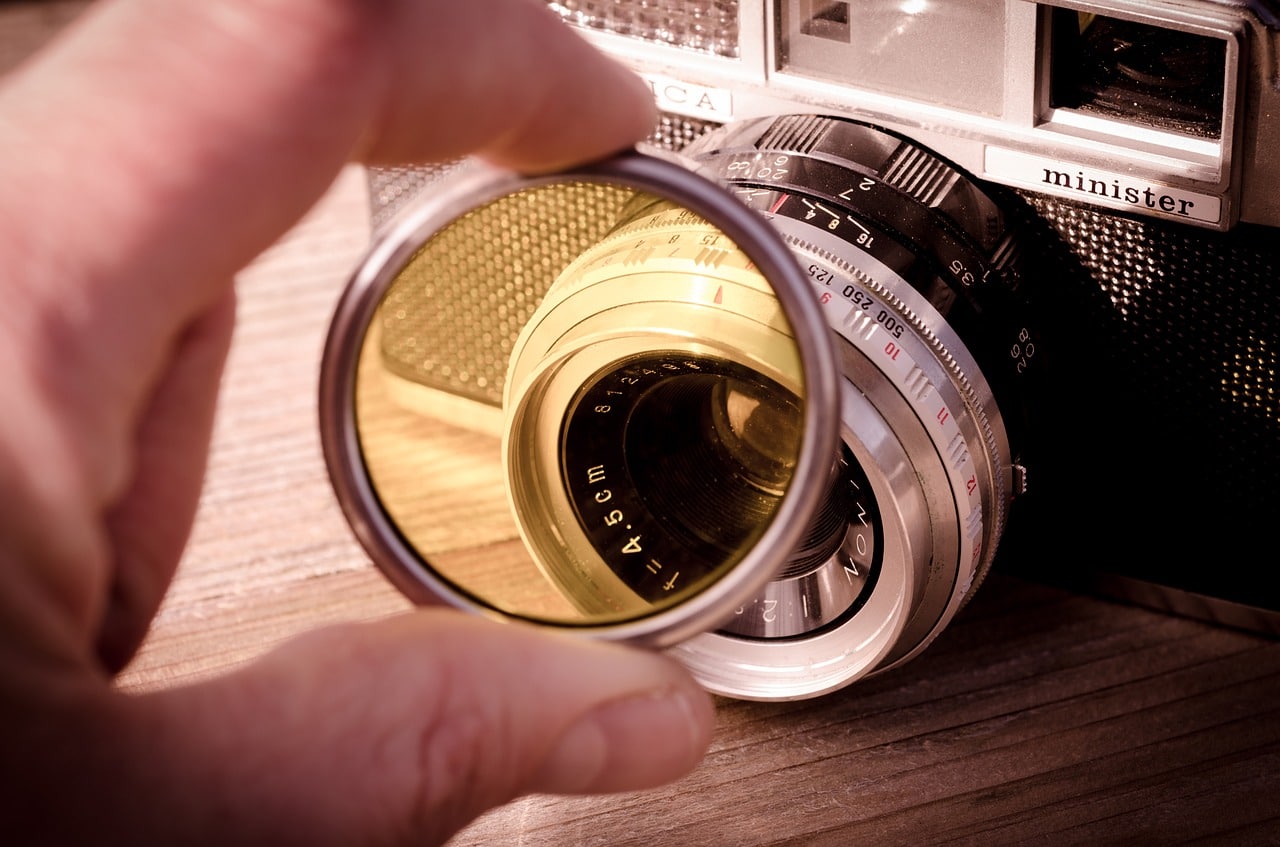
Image by Rudy and Peter Skitterians | Pixabay License
Glass filters
Let’s look first at the results that you can expect from a glass filter. This is assuming that you use the best possible filter on the market, or at least one which is very high quality. It should also be kept free of marks or scratches, and dust – that’s a given for either of the filters you use.
If your filter does end up getting scratched, you should replace it straight away, as these marks can end up visible as artefacts in your photographs. However, this is good news – as otherwise those scratches would have been on your lens itself, which would be significantly more expensive to replace.
Generally speaking, as long as these conditions of quality are met, you should see no change in the quality of your focus when using a filter or not using a filter, particularly in the centre of the image. This is because the filter is made out of the same material as the lens – glass. Therefore, no serious effect should be found except for the noted purpose of the filter (for example, an increase in contrast).
Testing has discovered that some filters made of glass may cause a loss of up to 20% sharpness in the corners, in contrast to the nearly-zero in the centre. Light filters tend to be the worst culprits, but different brands produce different quality of sharpness, so it’s worth doing your research.
Keep in mind that sometimes the more expensive filters do not perform as well as the less expensive ones – you may wish to look into which filters on the market are currently reported as being in the best in order to reduce the effect. However, with the right brand, the difference should be unnoticeable in almost all situations.
→ Related reading: An Intro To Filters For The Landscape Photographer
Resin filters
However, things are not so straightforward when using a resin filter. Reports from those who have tested different filters on the same camera and lenses suggest that a drop of around 15-20% sharpness may be encountered when using a resin filter instead of no filter at all.
This effect may even be increased when shooting at very high resolution or using filters which are intended for different purposes. Some results suggest as much as a 30% drop in sharpness – the equivalent to ditching your high-powered DSLR for a much less expensive model. All by putting a filter in front of the lens!
It’s also worth noting that some photographers have reported warped light from the use of resin filters, which may be related to scratching – which we will look at in a moment.
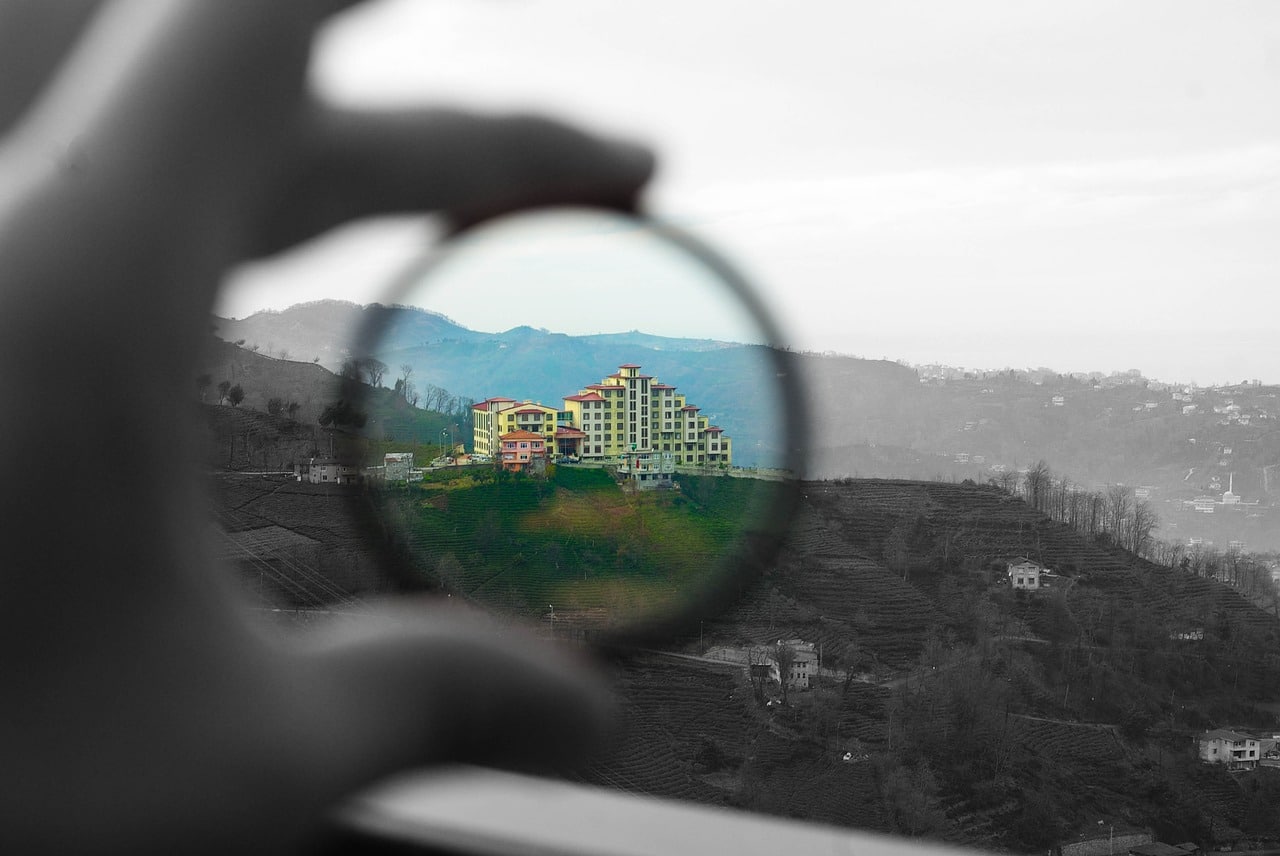
Image by yusuf kazancı | Pixabay License
Why use resin filters?
After seeing these results, which suggest that resin filters are seriously inferior to glass filters, you may be wondering why we still even bother to manufacture the resin type. The reason is that there are some distinct advantages that can be found from using a resin filter.
One key point is the fact that they are very flexible. This means that if you drop them onto a hard surface or push them up against something by accident, they are unlikely to break – they simply bend instead. They don’t shatter when placed under pressure. Photographers often feel that it is better to use them when out in the field as a result of this fact.
Of course, with every upside comes a corresponding downside. The resin surface is quite vulnerable to scratches, which can appear all over the lens even after moderate use. This will not necessarily affect your sharpness, but it will introduce more artefacts to your image and can also cause ghosting and flare, as well as reducing contrast across the image as a whole.
→ Related reading: Ghosting and Lens Flare 101
Which filter is best?
As mentioned, there is a downside to every upside – so it is worth mentioning in the interest of fairness that glass filters need a lot of care when being handled. Pressure will simply shatter them – and if they are attached to the camera when this happens, there is a chance that the shattered pieces of glass could then in turn scratch the lens itself.
They need to be transported more carefully, kept in padded cases – which means you might have to increase the weight of your overall kit or even invest in a larger bag. Dropping them after a moment’s fumble will mean that you need to get a new filter, and could interrupt your shoot.
They are less prone to scratching, but they are also vulnerable to touching from fingers. The oils on the skin are not great for filters, and at the very best case you will often end up with a smeared fingerprint which is difficult to remove when touched.
But when all is said and done, there is a clear winner in the debate as to what type of filter is best has to be the glass filter. There’s just no contest – glass filters do not disrupt your focus, and so long as you take care when using them, they can last a very long time indeed without needing replacement.
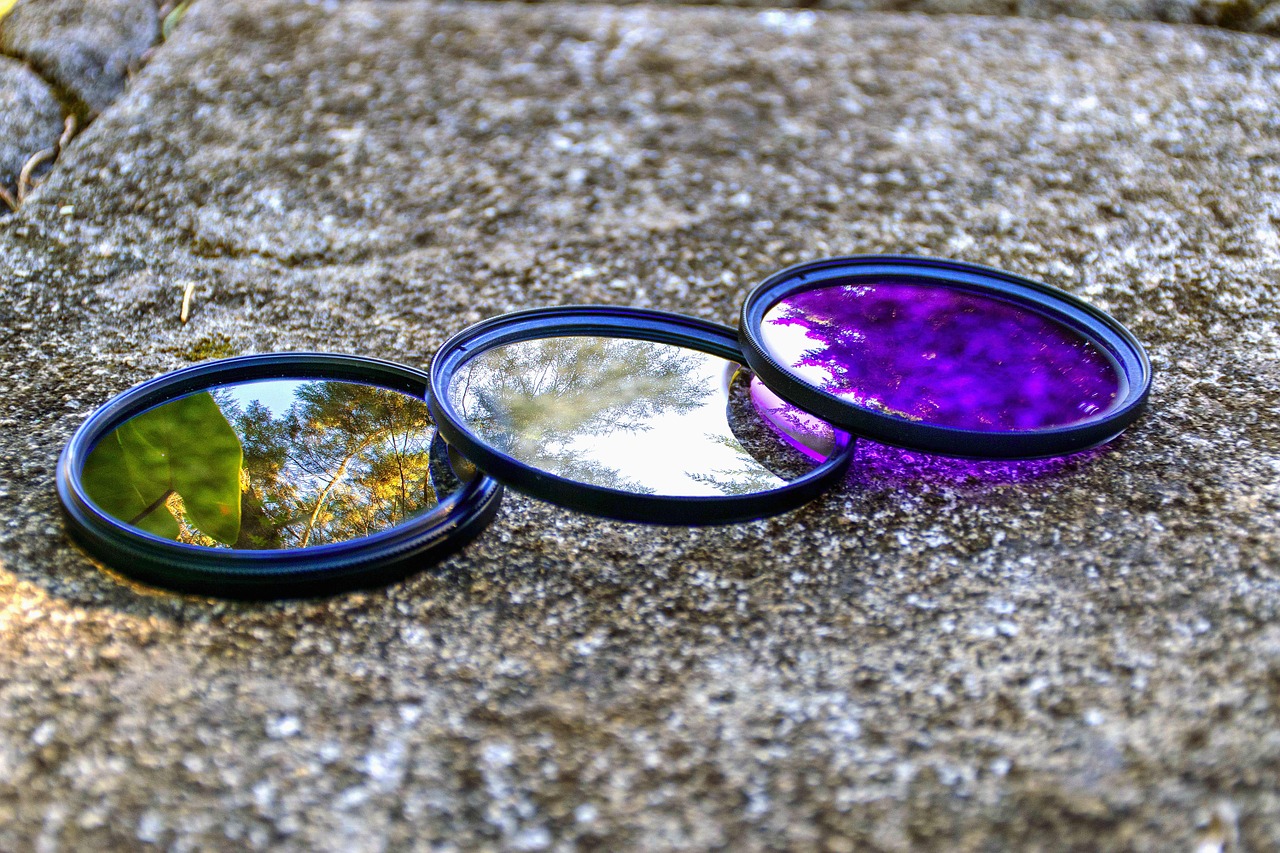
Image by Daniel Mena | Pixabay License
So, it looks like we have a clear winner in terms of which type of filter is best. However, remember to always research which brand is creating the best glass filter for your lens size – and to keep it protected from scratches and damage at all times.
The best way to protect your sharpness is not to put anything at all on top of your lens – though, of course, filters provide lots of benefits in different situations. Not the least of these is protection from the elements and scratches that would otherwise directly affect your lens.

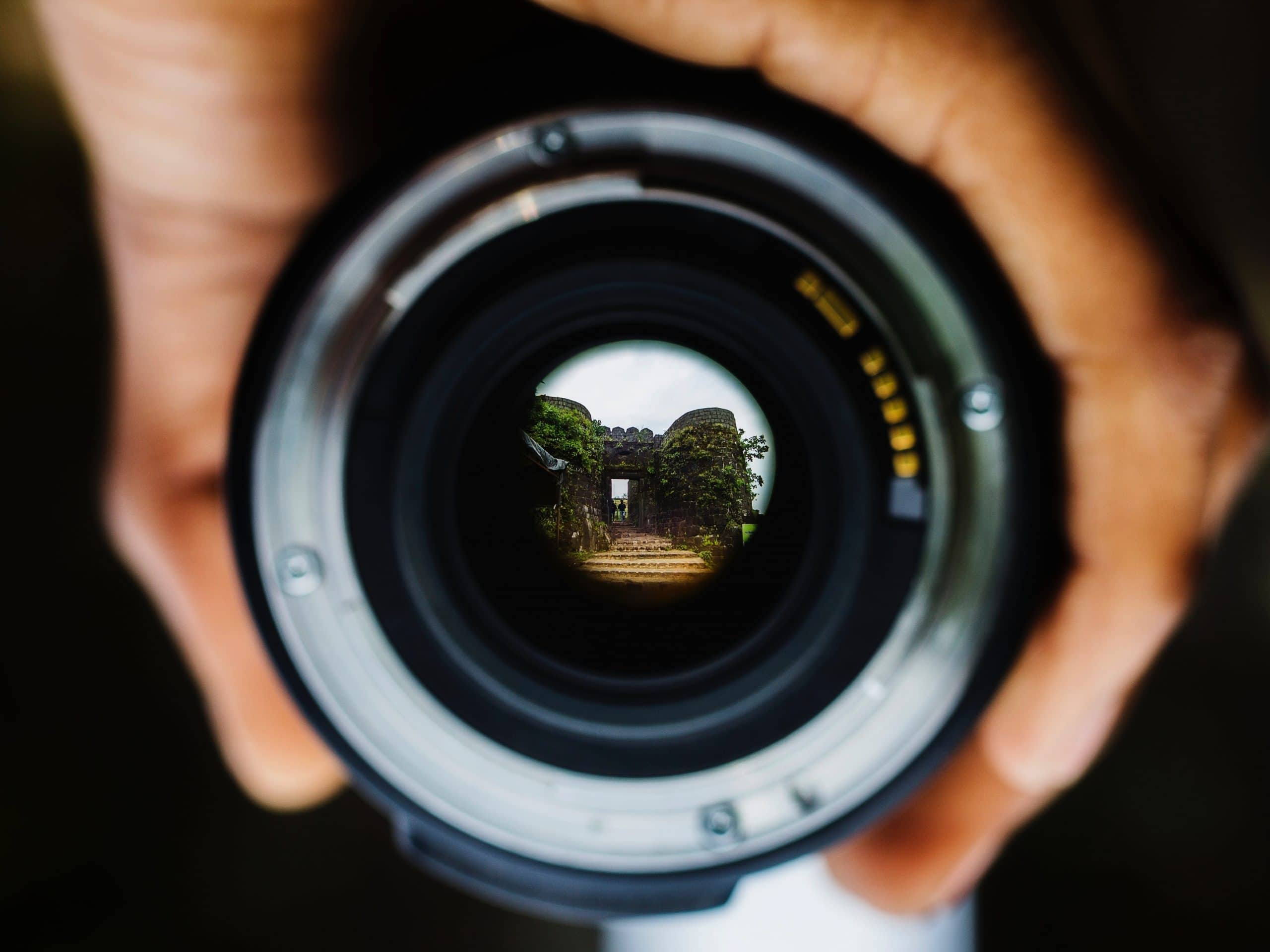

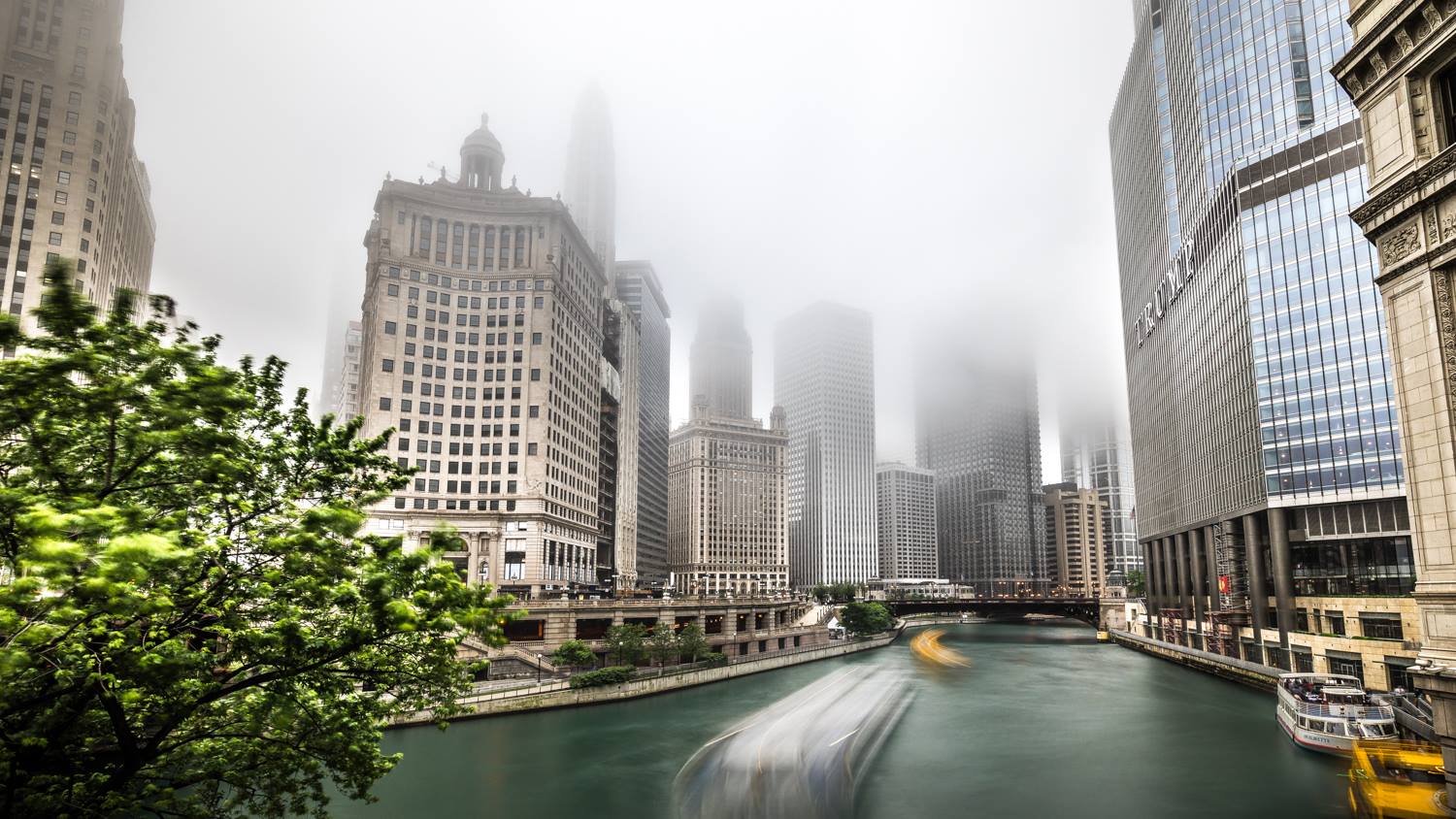








Some pros prefer to use lens hood rather than a filter or even a cap in some cases. Just my observation. Trying to figure out which way to go. Everybody seems to have thier own opinion and preference. Ive had focus issues with plastic filters. But sometimes polarizers necessary